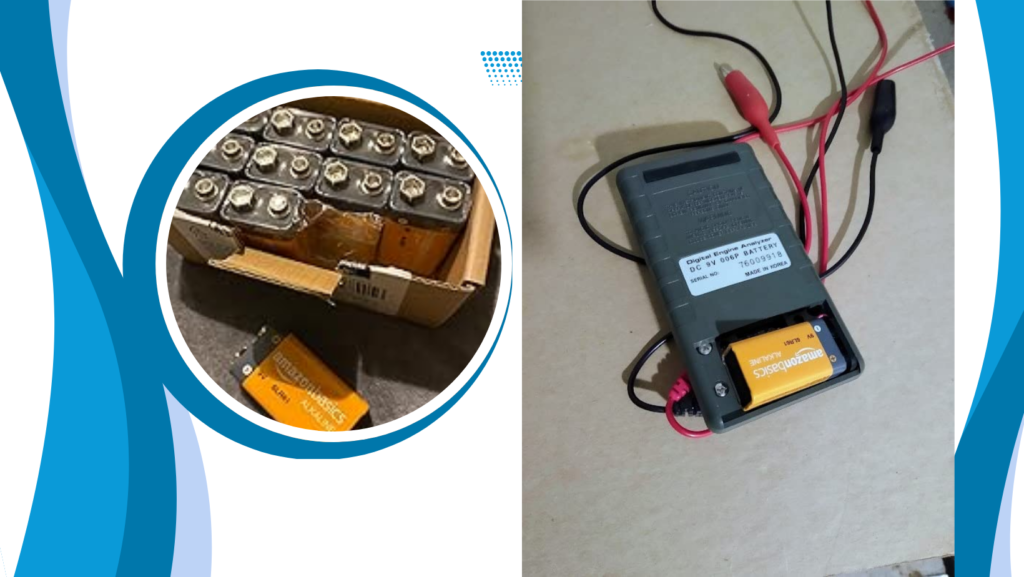My fascination with battery technology began over a decade ago when I was working on optimizing energy storage solutions for industrial plants. As a Mechanical Engineer specializing in plant operations and energy systems, I’ve seen firsthand how lithium-ion batteries revolutionized power storage. From their use in electric vehicles to solar power applications, their impact is undeniable. However, despite their advantages, many people still have misconceptions about lithium-ion technology. In this post, I’ll share my expertise and experience to demystify lithium-ion batteries and explore why they are the future of energy storage.

The Science Behind Lithium-Ion Batteries
Lithium-ion batteries have transformed the way we store and use energy. These rechargeable batteries work by moving lithium ions between the anode and cathode through an electrolyte. The key components include:
- Anode: Usually made of graphite, where lithium ions are stored during charging.
- Cathode: Typically composed of lithium-based compounds such as lithium cobalt oxide (LiCoO2) or lithium iron phosphate (LiFePO4).
- Electrolyte: A lithium salt solution that facilitates ion movement.
- Separator: Prevents short circuits by keeping the anode and cathode apart.
This chemistry allows for high energy density, longer cycle life, and lightweight design, making lithium-ion batteries ideal for applications ranging from smartphones to electric cars.
Why Lithium-Ion Batteries Are the Future of Energy Storage
High Energy Density and Efficiency
Lithium-ion batteries offer a significantly higher energy density compared to traditional lead-acid batteries. This means they can store more power in a smaller, lighter package, making them ideal for portable electronics, electric vehicles, and renewable energy storage.
Rapid Technological Advancements
With the rise of solid-state batteries and improved battery pack designs, lithium-ion technology is constantly evolving. Companies like Samsung and Tesla are investing heavily in research to enhance battery lifespan, reduce charging times, and improve safety.
Sustainability and Recycling Innovations
One common concern about lithium-ion batteries is waste management. However, advancements in battery recycling and second-life applications are reducing their environmental impact. Companies are developing ways to recover valuable materials like lithium, cobalt, and nickel to manufacture new batteries.
Expert Tips & Actionable Advice
Best Practices for Extending Lithium-Ion Battery Life
- Avoid Deep Discharges – Keeping your battery between 20% and 80% charge helps prolong its lifespan.
- Use Smart Chargers – A quality power bank with overcharge protection can prevent excessive wear.
- Store at Optimal Temperatures – Extreme heat and cold can degrade battery performance. Keep them between 15-25°C (59-77°F).
- Regular Maintenance – For deep-cycle batteries used in solar systems, occasional rebalancing ensures efficiency.
Common Questions & Misconceptions
Are Lithium-Ion Batteries Safe?
Yes, when used correctly. Modern cylindrical, pouch, and polymer battery cell designs have built-in protections against overheating and overcharging. Issues arise mostly from poor-quality products or improper usage.
Can Lithium-Ion Batteries Be Used for Solar Energy Storage?
Absolutely! 48V lithium battery packs are increasingly used in solar applications, offering better efficiency and lifespan than lead-acid alternatives.
What’s the Difference Between Lithium-Ion and LiPo Batteries?
LiPo (Lithium Polymer) batteries use a gel-like electrolyte, making them more flexible in design but slightly less stable than traditional lithium-ion cells. They’re commonly found in drones and RC vehicles.ng, lithium-ion batteries remain expensive compared to lead-acid alternatives, limiting their accessibility for some applications.

Recommended Tools, Resources & Product Insights
- Battery Management Systems (BMS) – Prevent overcharging and overheating.
- Smart Battery Chargers – Optimize charging cycles for longer battery life.
- Books on Battery Technology – “The Battery Revolution: The Future of Energy Storage” offers in-depth insights.
- Trusted Brands – Samsung, Panasonic, and LG manufacture high-quality lithium-ion cells.
Case Study: How Lithium-Ion Batteries Transformed Industrial Energy Storage
During my time working in industrial energy systems, I was part of a project to replace lead-acid 12V deep-cycle batteries with 100Ah lithium battery packs. The results were impressive:
- 50% reduction in maintenance costs
- Increased efficiency by 30%
- Longer lifespan, reducing overall replacement frequency
This shift not only improved operational efficiency but also aligned with sustainability goals, proving the long-term viability of lithium-ion technology.
Conclusion: Embracing the Future of Energy Storage
Lithium-ion batteries are undeniably the future of energy storage, offering high efficiency, longevity, and versatility across various industries. Whether you’re considering them for an electric car, solar system, or industrial application, understanding their benefits and best practices ensures you get the most out of your investment.
What are your thoughts on lithium-ion batteries? Have you used them in your projects? Share your experiences in the comments below or explore more insights on BatteryCoach.com!uture of lithium-ion batteries?
Advancements in solid-state technology, cost reductions, and increased energy density will make them even more critical for clean energy and transportation.
